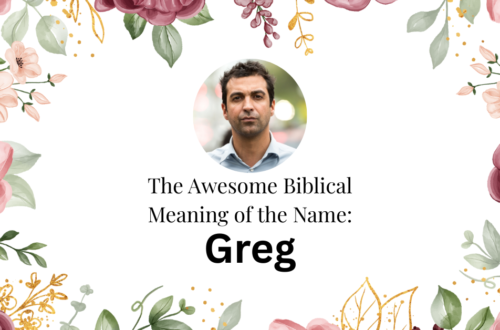The name Leah carries profound significance in the Bible. It symbolizes weariness and the idea of being “tender-eyed.” Throughout the Old Testament, Leah emerges as a prominent figure, playing a key role in the lineage of the twelve tribes of Israel. Her story reveals a complex relationship with her husband, Jacob, and a journey of faith shaped by struggle and perseverance. In this post, we will explore the biblical meaning of the name Leah, her narrative in Scripture, and the enduring lessons her life offers.
Origin of the Name Leah
The name Leah comes from the Hebrew word le’ah (לֵאָה), which many interpret as “weary” or “tender-eyed.” This meaning reflects not only Leah’s physical appearance but also her personal struggles. From the very beginning, her life unfolds with challenges, especially in her relationships with her sister Rachel and her husband Jacob. However, despite these difficulties, Leah’s story ultimately demonstrates themes of endurance, divine purpose, and God’s faithfulness.
Leah in the Bible
Leah’s story unfolds in the Book of Genesis, where she navigates family dynamics, jealousy, and, most importantly, God’s favor.
Leah’s Background
Leah, the eldest daughter of Laban, grows up alongside her younger sister, Rachel. When Jacob arrives in Laban’s household, he immediately falls in love with Rachel and agrees to work for seven years to marry her. However, when the time comes for the wedding, Laban deceives Jacob by giving him Leah as a wife instead.
“So Jacob served seven years to get Rachel, but they seemed like only a few days to him because of his love for her.” (Genesis 29:20, ESV)
The morning after the wedding, Jacob realizes Laban’s deception. In response, Laban justifies his actions by explaining that their culture does not permit the younger daughter to marry before the elder (Genesis 29:26). Although Jacob feels betrayed, he agrees to work another seven years to marry Rachel as well. Consequently, Leah finds herself in a heartbreaking situation—married to a man who never wanted her in the first place.
Leah’s Struggles and Heartache
From that point on, Leah endures deep heartache. She knows that Jacob loves Rachel far more than he loves her. Desperate to earn his affection, Leah finds purpose in bearing children. As Genesis 29:31 explains:
“When the Lord saw that Leah was not loved, he enabled her to conceive, but Rachel remained childless.” (Genesis 29:31, ESV)
As a result, Leah gives birth to four sons: Reuben, Simeon, Levi, and Judah. With each child, she expresses her longing for Jacob’s love and attention.
- Reuben: “Because the Lord has seen my misery; surely my husband will love me now.” (Genesis 29:32)
- Simeon: “Because the Lord heard that I am not loved, he gave me this one too.” (Genesis 29:33)
- Levi: “Now at last my husband will become attached to me because I have borne him three sons.” (Genesis 29:34)
- Judah: “This time I will praise the Lord.” (Genesis 29:35)
At first, Leah seeks fulfillment through Jacob’s love. However, as time goes on, she shifts her focus toward God. This transformation becomes especially clear when she names her fourth son Judah, meaning “praise.” Instead of longing for Jacob’s approval, she begins to find her true worth in God’s blessings.
God’s Faithfulness
Despite her struggles, God sees Leah’s pain and blesses her abundantly. Although Jacob does not love her as he does Rachel, God includes Leah in His divine plan. Her fourth son, Judah, eventually becomes the ancestor of King David and, ultimately, Jesus Christ. This reality highlights a powerful truth—God often works through those who feel overlooked to accomplish His greatest purposes.
Later Life and Legacy
As time goes on, Leah continues to bear children while Rachel struggles with infertility. Driven by jealousy, Rachel offers her maid Bilhah to Jacob, hoping to build a family through her. In response, Leah gives her maid Zilpah to Jacob as well. Eventually, Leah bears six sons and a daughter named Dinah.
- Issachar: “God has rewarded me for my labor.” (Genesis 30:18)
- Zebulun: “God has presented me with a precious gift.” (Genesis 30:20)
- Dinah: Leah’s only daughter, whose name means “judged” or “vindicated.”
Through these children, Leah’s legacy continues. Many of her sons go on to form key tribes of Israel, reinforcing her lasting impact on biblical history.
Symbolic Meanings of Leah
Leah’s story carries rich symbolism, offering several key lessons:
- Weariness and Struggle: Leah’s name reflects her difficult journey. She experiences rejection and hardship but remains steadfast.
- Resilience and Endurance: Instead of letting her struggles define her, Leah continues seeking fulfillment through her relationship with God.
- God’s Provision: God sees Leah’s suffering and blesses her with children, reminding us that He cares for those who feel unnoticed.
- Praise and Thanksgiving: By naming her fourth son Judah, meaning “praise,” Leah demonstrates the importance of shifting focus from earthly struggles to glorifying God.
Leah and the Gospel Message
Leah’s story also highlights themes that connect deeply with the Gospel message.
- God Cares for the Outcast: Leah’s experience proves that God values those whom society or individuals reject. The New Testament echoes this truth as Jesus reaches out to the marginalized.
- Leah’s Lineage Leads to Christ: Through Leah’s son Judah, God fulfills His promise of a Savior. This reality shows that God often works through unexpected people to accomplish His plans.
- Faithfulness in Trials: Leah’s perseverance encourages believers to trust God even when circumstances seem unfair or painful. Her story serves as a reminder that God remains faithful.
Leah’s Legacy
Ultimately, Leah leaves behind a legacy of resilience, faith, and divine purpose. Her life continues to inspire those who struggle with rejection or feel unseen.
- A Model of Perseverance: Leah’s ability to endure hardships while maintaining faith in God sets an example for believers today.
- The Value of Praise: Leah teaches the importance of shifting focus from earthly struggles to gratitude toward God.
Theological Implications
Leah’s story carries deep theological significance, revealing profound truths about God’s nature and His plan for humanity.
- God’s Providence in Every Life: Leah’s journey shows that God has a purpose for every individual, even those who feel unappreciated.
- The Complexity of Human Relationships: Leah’s relationships with Jacob and Rachel illustrate the struggles that arise in family dynamics. Her story encourages believers to seek healing and reconciliation.
- God’s Redemptive Plan: Leah’s role in Jesus’ lineage demonstrates how God uses people from all walks of life to fulfill His promises.
Conclusion
The biblical meaning of the name Leah—“weary” or “tender-eyed”—captures the essence of her story. She faces challenges, but she also discovers purpose and blessings through God. Leah’s life teaches us to trust God’s faithfulness, praise Him in all circumstances, and find value beyond human approval.
Call to Action
Do you relate to Leah’s story? Have you ever felt overlooked but later realized that God had a bigger plan? Share your thoughts in the comments and let’s encourage one another in faith!





